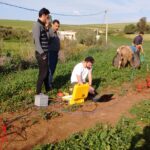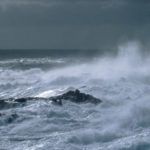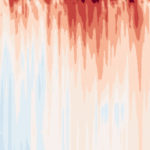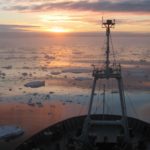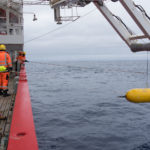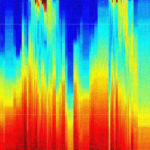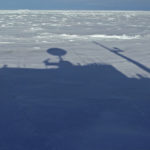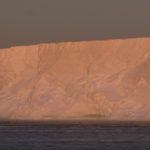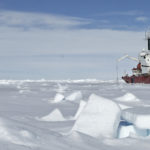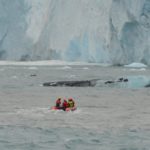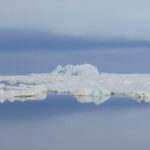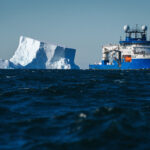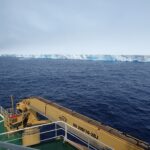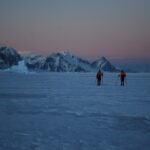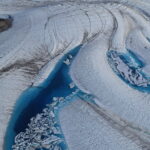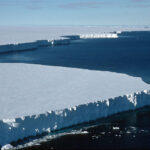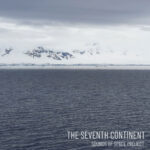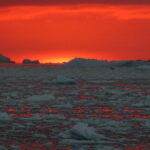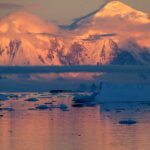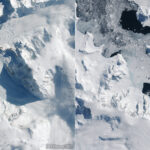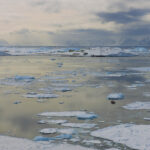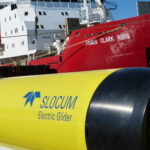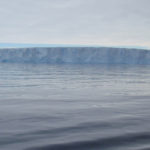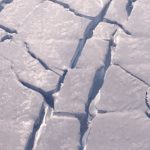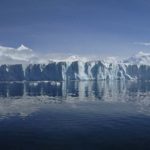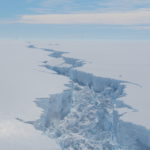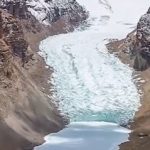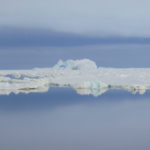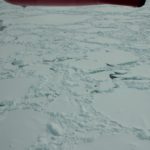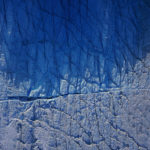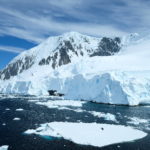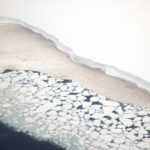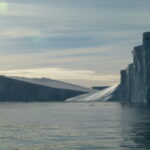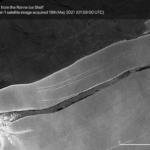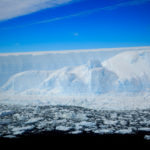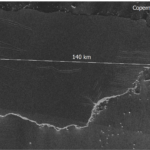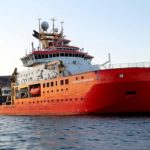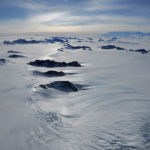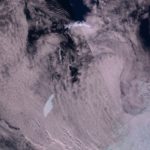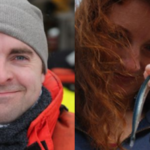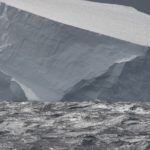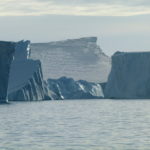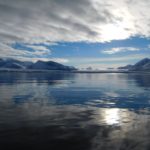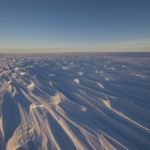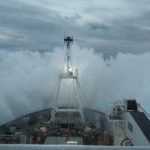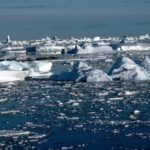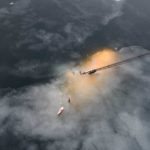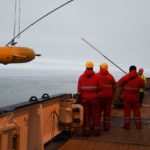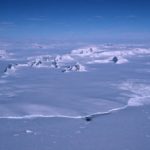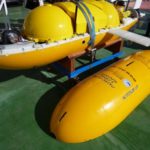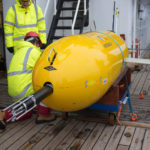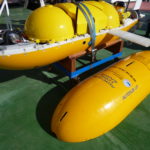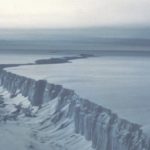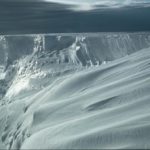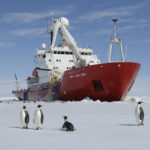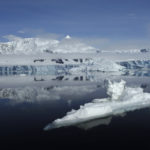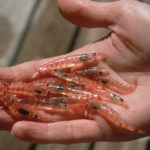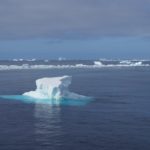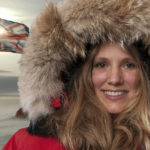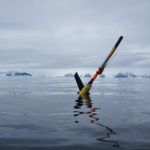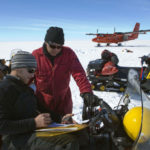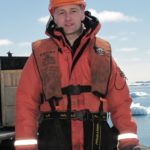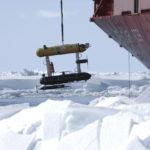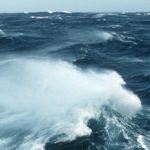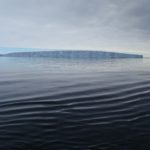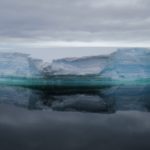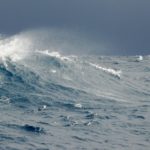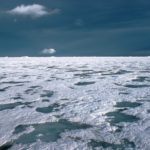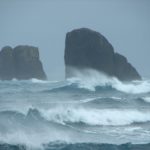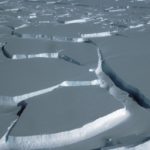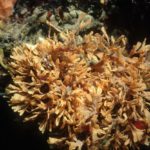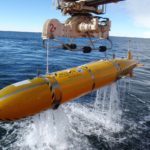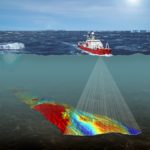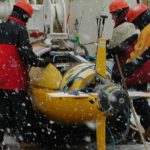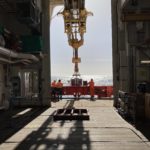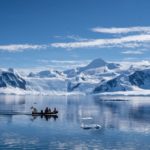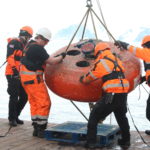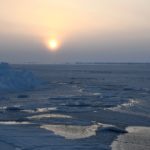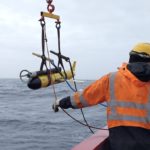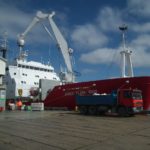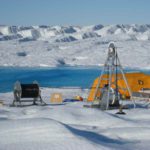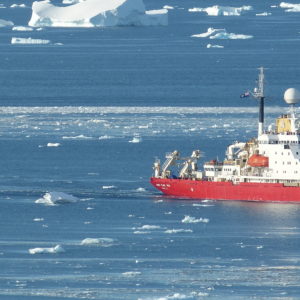Polar Oceans team
Our ambition
Is to understand the role of the oceans in influencing the polar ice caps, and regional climate change caused by shifts in ocean circulation. Our aim is to reduce uncertainty in scientific predictions for a future world and to provide Government with scientific assessment of how these issues will affect the everyday lives of people in decades to come.

Our two research groups (Open Oceans and Shelf Seas) focus on the rapidly-changing regions of West Antarctica and Greenland, on other polar areas where the current rates of change appear slower but which may be susceptible to dramatic changes in future, and on the broader deep ocean areas of both the Arctic and the Southern Ocean. The British Antarctic Survey has unique capability in these research areas, including leadership of interdisciplinary teams that work across the boundaries of glaciology, oceanography and climate science.
Team priorities
Science
- The role of the ocean in melting the polar ice caps. To measure, simulate and understand the global implications of the polar changes and the influencing of ice shelves and ice sheet stability.
- The vigorous-overturning in the regions of water mass renewal close to Antarctica and in the Arctic. To improve knowledge of the role played by the polar oceans in exchanging heat and carbon with the atmosphere, in storing them in the ocean interior, and the impacts that these processes have on the climatic evolution of the planet
- Reduce uncertainty concerning the future trends in climate and sea level. To conduct specific process models and regional ocean model experiments, and work with partners to simulate and understand the global implications of the polar changes
Technology, innovation and training
- Use a range of advanced technology, including some developed in-house to fulfil specific requirements
- Targeted numerical modelling studies and dynamical analyses
- Ship-based and autonomous marine platforms, along with instrumentation deployed on and through ice shelves in both polar regions
Influencing and leading international programmes
- Work with leading UK and international partners who conduct Arctic and Antarctic research, including those that are involved with the Intergovernmental Panel on Climate Change (IPCC)
Stakeholder engagement
- Provide advice and briefings to science advisors within UK Government Departments, including the Department of Energy and Climate Change
- Engage with business groups and actively seek partnerships that help shape the development of science projects
Public engagement
- Disseminate our findings, published in the highest-impact journals, through presentations in leading national and international forums, and via numerous public engagement activities
How are scientists measuring the impacts of CO2 over time? Message from Antarctica sees deputy head of the Polar Oceans Team at the British Antarctic Survey, Emily Shuckburgh, work with award-winning designer, author and illustrator Chris Haughton
OFIC
Antarctic ice-loss research capabilityUKESM-BAS
Reliable projections of the Earth’s climate are at the heart of scientific support for international efforts to address global change. There is increasing recognition that reliable projections require that physical …ACSIS
Major changes are occurring across the North Atlantic climate system: in the ocean and atmosphere temperatures and circulation, in sea ice thickness and extent, and in key atmospheric constituents such …ORCHESTRA
Understanding the Ocean Regulation of Climate by Heat, Carbon Sequestration and TransportsDynOPO
Dynamics of the Orkney Passage Outflow (DynOPO) is a collaboration between BAS, the University of Southampton and the National Oceanography Centre (NOC). The project aims to investigate the flow of …A23 repeat section
Understanding Antarctic Bottom Water (AABW) and its affect on global ocean circulation.Rothera Time Series
Earth System indicators in AntarcticaTEA-COSI
TEA_COSI assesses Arctic Sea-ice which has an important impact on currents and ocean circulations around the globeiSTAR-A Ocean2Ice Processes and variability
iStar-B strives to better understand ocean and ice interaction, processes and variabilityiSTAR-B Ocean circulation and melting beneath the ice shelves of the south-eastern Amundsen Sea
iStar-B studies ocean circulation and melting beneath the ice shelves of the south-eastern Amundsen SeaBIOPOLE
Overview Climate change is proceeding faster at the poles than any other region, with sea-ice retreating, glaciers melting and biotic communities being invaded by sub-polar species. These changes are affecting …DEFIANT
Overview While climate models suggest Antarctic sea ice extent should also reduce in response to rising atmospheric CO2 concentraions, satellite observations reveal that during 1979-2015 the opposite was in fact …SO-ICE
The European Space Agency (ESA) Southern Ocean-Ice Shelf Interactions (SO-ICE) project is a collaborative research project bringing together the ESA Polar+ Ice Shelves and 4D Antarctica projects, and the European …Thriving ecosystem discovered following iceberg calving
20 March, 2025
ANTARCTICA: Scientists have discovered vibrant communities of ancient sponges and corals on the newly exposed seafloor following the calving of the giant A-84 iceberg. This offers new insights into how …
World’s largest iceberg grounds near sub-Antarctic Island of South Georgia
4 March, 2025
ANTARCTICA: The world’s largest and oldest iceberg A23a has finally come to a standstill as it appears to have run aground near the sub-Antarctic Island of South Georgia. The giant …
Declining Antarctic sea ice generating more ocean heat loss and storms
19 December, 2024
A new study shows that the ongoing decline in Antarctic sea ice is leading to more heat loss from the ocean to the atmosphere and an increase in storm activity. …
Role of polar ice sheets in climate tipping points
27 November, 2024
Polar ice sheets are critical for climate projections, according to new research published today in the journal Nature Communications Earth & Environment. Improving understanding of the Greenland and Antarctic ice sheets …
Underwater tsunamis focus of new study
19 November, 2024
An international research team, led by British Antarctic Survey (BAS), has been awarded £3.7M to advance a ground-breaking study on how underwater tsunamis are triggered by glacier calving around Antarctica. …
Sounds of Antarctica come to life in new album
15 November, 2024
Today marks the release of The Seventh Continent, a new album from the international Sounds of Space Project that offers a unique aural journey to Antarctica. The album features contributions …
Regional data highlights emerging climate change signals
1 October, 2024
A greater understanding of how climate change impacts at a regional level is vital to developing effective climate policies that protect communities from escalating risks. A team, including researchers from …
Antarctic photo nominated in competition
6 December, 2023
The Royal Society Publishing Photography Competition celebrates the power of photography in capturing scientific phenomena happening all around us, and the role great images play in making science accessible to …
Next phase of national climate science partnership
30 November, 2023
Leading UK climate science organisations are driving forwards a national alliance focused on climate solutions for society, led by new co-directors including Professor Michael Meredith from British Antarctic Survey (BAS). …
Scientists track rapid retreat of Antarctic glacier
28 November, 2023
Scientists are warning that apparently stable glaciers in Antarctica can change rapidly and lose large quantities of ice as a result of warmer oceans. Using satellite data, a team discovered …
Increased West Antarctic Ice Sheet melting ‘unavoidable’
23 October, 2023
The West Antarctic Ice Sheet will continue to increase its rate of melting over the rest of the century, no matter how much we reduce fossil fuel use, according to …
Deep ocean waters in Antarctica are shrinking and warming
12 June, 2023
Antarctic Bottom Water is the coldest, densest water mass on the planet and plays a pivotal role in regulating the ocean’s ability to store heat and capture carbon. In a …
The changing Southern Ocean: Heat and carbon
8 May, 2023
A series of studies on the Southern Ocean, which encircles Antarctica, reveal how it is changing. A special issue of the Journal Proceedings of the Royal Society, led by the …
Extreme snowfall in West Antarctica driving sea-level rise
21 March, 2023
A new study highlights how extreme snowfall events significantly alter the amount of ice lost by the West Antarctic Ice Sheet. A team of scientists from British Antarctic Survey, along …
New close-up view of melting beneath Thwaites Glacier
15 February, 2023
The rapid retreat of Thwaites Glacier in West Antarctica appears to be driven by different processes under its floating ice shelf than researchers previously understood. Novel observations from where the …
Underwater tsunamis created by glacier calving
23 November, 2022
Scientists on a research vessel in Antarctica watched the front of a glacier disintegrate and their measurements ‘went off the scale’. As well as witnessing disruptions on the ocean surface, …
Glaciers in the spotlight on BBC’s Our Frozen Planet
11 October, 2022
How much water the mountain glaciers of the Himalayas contain and how the mighty Thwaites Glacier in West Antarctica will contribute to global sea-level rise form part of the final …
BBC’s Frozen Planet II: science into television
23 September, 2022
In 2011, Frozen Planet gave BBC viewers an unprecedented insight into life in the Poles. The final episode featured British Antarctic Survey (BAS) glaciologist Dr Andy Smith using explosives to …
Funding addresses environmental challenges
27 June, 2022
British Antarctic Survey (BAS) scientists will investigate critical challenges facing the UK, thanks to new funding from the Natural Environment Research Council (NERC). A £47m investment to several UK research …
New link between greenhouse gases and sea-level rise
6 April, 2022
Researchers have used advanced ocean modelling techniques to reveal how greenhouse gas emissions contribute to warmer oceans and resulting melting of the West Antarctic Ice Sheet.
Study underway as Antarctic sea ice extent at record level
29 March, 2022
A £5m project funded by the Natural Environment Research Council (NERC) to investigate the complex changes seen in sea ice around the Antarctic begins this month (March 2022) as the …
Heat source melting Greenland Ice Sheet discovered
21 February, 2022
A new study has found that the world’s second-largest ice sheet is generating huge amounts of heat. Researchers including BAS oceanographer Dr Keith Nicholls have observed extremely high rates of melting at the bottom of the Greenland Ice Sheet.
Warming Western Antarctic Peninsula waters impact plankton community
17 August, 2021
Warming water and receding sea ice in the Western Antarctic Peninsula is changing the local plankton community with potential consequences for climate change, according to an international team of researchers. …
IPCC: Polar scientists welcome Climate Change Assessment
9 August, 2021
CAMBRIDGE: British Antarctic Survey welcomes the publication of the Intergovernmental Panel on Climate Change (IPCC) Working Group 1 component of its Sixth Assessment Report. This assessment brings together the latest advances in …
Antarctic glacier is ripping apart at ice front, causing it to gain speed
11 June, 2021
For decades, the ice shelf helping to hold back one of the fastest-moving glaciers in Antarctica – Pine Island Glacier in West Antarctica – has gradually thinned. Analysis of satellite …
The world’s largest iceberg
21 May, 2021
An enormous iceberg has calved from the western side of the Ronne Ice Shelf, in Antarctica. The iceberg, newly named A-76, measures around 4320 sq km in size and is …
Scientists reconstruct past history of largest ice shelf on Antarctic Peninsula
19 May, 2021
For the first time, geological records have been used to reconstruct the history of Larsen C Ice Shelf in Antarctica. The ice shelf is the largest remaining remnant of a …
End of giant iceberg A-68
19 April, 2021
The mission to determine the impact of the giant A-68a iceberg on the important marine ecosystem of sub-Antarctic South Georgia is a success.
New autonomous robotic for RRS Sir David Attenborough
15 March, 2021
A new unmanned robotic vehicle on the RRS Sir David Attenborough will help scientists to understand the impact of glaciers on sea-level rise.
Potential for life in lakes isolated beneath Antarctic ice
18 February, 2021
In a study published in Science Advances, researchers from Imperial College London, the University of Lyon and the British Antarctic Survey have shown Antarctic subglacial lakes may be more hospitable …
Celebrating International Day of Women & Girls in Science 2021
11 February, 2021
Today is International Day of Women and Girls in Science (11 February), a celebration of women and girls in science led by UNESCO and UN-Women. “International Day of Women and …
Giant iceberg mission begins
2 February, 2021
A research mission to determine the impact of the giant A-68a iceberg on one of the world’s most important ecosystems departs from Stanley in the Falkland Islands today (2 February …
Fellowship success for leaders of the future
23 April, 2020
UK Research and Innovation (UKRI) has announced its latest round of Future Leaders Fellowships today (23 April 2020). Congratulations to Dr Dan Jones and Dr Clara Manno of British Antarctic …
New report reveals state of the planet
26 September, 2019
MONACO: Hundreds of scientists and Government representatives met in Monaco this week to finalise the new Intergovernmental Panel on Climate Change Special Report on the Ocean and Cryosphere in a …
Solar heat drives rapid melting of Antarctic Ice Shelf
29 April, 2019
A section of the world’s largest ice shelf in Antarctica – around the size of Spain – is melting 10 times faster than average and warm ocean currents beneath it …
Scientists map ‘deepest’ parts of Southern Ocean
22 March, 2019
A team of researchers led by British Antarctic Survey has for the first time mapped the deepest part of the South Sandwich Trench in the Southern Ocean. This part of …
Study shows melting ice sheets will disrupt climate
7 February, 2019
Water entering the oceans from melting ice sheets could cause extreme weather and a change in ocean circulation not currently accounted for in global climate policies, a new study published …
Scientists drill to record depths in West Antarctica
24 January, 2019
A team of scientists and engineers has for the first time successfully drilled over two kilometres through the ice sheet in West Antarctica using hot water. This research will help …
Funding to assess shipping emissions and climate hazards
13 December, 2018
British Antarctic Survey (BAS) scientists have been awarded funding to enable them to assess the impact of emissions from shipping and to quantify and manage the risk of climate hazards. …
Challenger Medal award
13 September, 2018
The prestigious Challenger Medal for excellence in marine science has been awarded to British Antarctic Survey (BAS) oceanographer Professor Mike Meredith. Presented every two years by the Challenger Society – …
Melt-rate of West Antarctic Ice Sheet highly sensitive to changes in ocean temperatures
13 August, 2018
Melting of ice shelves in West Antarctica speeds up and slows down in response to changes in deep ocean temperature, and is far more variable than previously thought, according to …
Special issue on how oceans are changing
14 May, 2018
The seas around the Antarctic Peninsula are biologically extremely rich, but are climatically sensitive, having experienced some of the fastest warming globally in recent decades. A special issue of the …
Boaty returns from first mission under the ice
13 March, 2018
The yellow high-tech autonomous underwater vehicle (AUV), affectionately known as Boaty McBoatface, has successfully returned from an ambitious science expedition deep below half a kilometre of ice. It is the …
BAS Oceanographer selected for Special IPCC Report
17 August, 2017
The Intergovernmental Panel on Climate Change (IPCC) has selected Professor Mike Meredith from British Antarctic Survey (BAS) to be a coordinating lead author for a Special Report on the Ocean …
Climate Scientist awarded Prestigious Mathematical prize
18 July, 2017
Last week (12th July) Dr Emily Shuckburgh travelled to Pittsburgh, USA, and received the prestigious 2017 I. E. Block Community Lecture prize from SIAM – the Society for Industrial and …
Boaty McBoatface returns home with unprecedented data
28 June, 2017
Researchers have captured unprecedented data about some of the coldest abyssal ocean waters on earth – known as Antarctic Bottom Water (AABW) – during the first voyage of the yellow …
The first dive of Boaty McBoatface
7 April, 2017
The unmanned submersible Boaty McBoatface was deployed in the Antarctic for the first time.
Boaty McBoatface sub prepares for first Antarctic mission
13 March, 2017
Boaty McBoatface is joining ocean scientists from the University of Southampton and British Antarctic Survey (BAS) on an expedition to study some of the deepest and coldest abyssal ocean waters …
New footage shows crack in Larsen C Ice Shelf
21 February, 2017
British Antarctic Survey (BAS) recently captured this video footage of a huge crack in the Larsen C Ice Shelf, on the Antarctic Peninsula. Currently a huge iceberg, roughly the size …
Local weather plays part in retreat of glacier
17 February, 2017
Local weather plays an important part in the retreat of the ice shelves in West Antarctica, according to new research published in the journal Nature Communications today (Friday 17 February). …
Scientists explain how meltwater reaches ocean depths
30 January, 2017
An international team of researchers has discovered why fresh water, melted from Antarctic ice sheets, is often detected below the surface of the ocean, rather than rising to the top …
Polar oceanographer co-authors climate change Ladybird book with HRH Prince of Wales and Tony Juniper
15 January, 2017
British Antarctic Survey scientist Dr Emily Shuckburgh OBE has co-authored a book on climate change as part of the new Ladybird Expert series, it was announced today. Her co-authors are His …
Nature’s ocean fertiliser
20 September, 2016
Scientists have discovered that Antarctic krill – a tiny shrimp-like crustacean – plays a key role in fertilising the Southern Ocean with iron, which stimulates the growth of phytoplankton, the …
Ocean warming primary cause of glacier retreat
14 July, 2016
A new study has found for the first time that ocean warming is the primary cause of retreat of glaciers on the Antarctic Peninsula. The Peninsula is one of the largest current contributors to sea-level rise and this new finding will enable researchers to make better predictions of ice loss from this region.
Wind-blown Antarctic sea ice helps drive ocean circulation
27 June, 2016
Antarctic sea ice is constantly on the move as powerful winds blow it away from the coast and out toward the open ocean. A new study published today in the journal Nature Geoscience (Monday 27 June) shows how that ice migration may be more important for the global ocean circulation than anyone realized.
NEWS STORY: New Year’s Honours
1 January, 2016
Dr Emily Shuckburgh, British Antarctic Survey’s Deputy Head of Polar Oceans, was among those named in the New Year’s Honours List. She has been awarded an OBE for services to …
NEWS STORY: New Centre for Doctoral Training
6 October, 2015
NERC funds PhD training in robotics and autonomous systems
PRESS RELEASE: Ice shelf at double risk
13 May, 2015
New study shows Antarctic ice shelf is thinning from above and below A decade-long scientific debate about what’s causing the thinning of one of Antarctica’s largest ice shelves is settled …
NEWS STORY: Columns widespread in Southern Ocean
5 March, 2015
Oceanographers discover ‘Taylor columns’ are widespread in Southern Ocean according to new research published recently in the Journal of Geophysical Research Lead author Professor Mike Meredith, a Senior Oceanographer at …
PRESS RELEASE: Mapping the ice from below
24 November, 2014
Underwater robot sheds new light on Antarctic sea ice The first detailed, high-resolution 3-D maps of Antarctic sea ice have been developed using an underwater robot. Scientists from the UK, …
PRESS RELEASE: New marine life atlas
25 August, 2014
New Atlas of Southern Ocean marine life A new atlas, providing the most thorough audit of marine life in the Southern Ocean, is published this week by the Scientific Committee …
NEWS STORY: Southern Ocean dynamics
2 June, 2014
The Southern Ocean: new insights into circulation, carbon and climate A special issue of the Philosophical Transactions of the Royal Society A has been published today (Monday 2 June) which …
NEWS STORY: Crucial conditions for phytoplankton
16 March, 2014
Winter conditions crucial for phytoplankton growth in Southern Ocean An international team of researchers, including the British Antarctic Survey, has found new evidence that winter conditions in the Southern Ocean …
PRESS RELEASE: Pine Island Glacier and climatic variability
2 January, 2014
Pine Island Glacier sensitive to climatic variability A new study published in Science this month suggests the thinning of Pine Island Glacier in West Antarctica is much more susceptible to …
NEWS STORY: New research on ocean currents
22 December, 2013
New research sheds light on history of polar current Research conducted by a team that included scientists from British Antarctic Survey reveals the ocean current moving around the South Pole …
NEWS STORY: Submerged mountains aid ocean mixing
18 September, 2013
Undersea mountains provide crucial piece in climate prediction puzzle A mystery in the ocean near Antarctica has been solved by researchers who have long puzzled over how deep and mid-depth …
NEWS STORY: New academic role for expert
22 May, 2013
Honorary Professorship for BAS polar ocean expert Michael Meredith Polar ocean expert, Michael Meredith, has been made an honorary Professor by the University of the Highlands and Islands. The professorship …
NEWS STORY: New post for oceans expert
7 February, 2013
Professor Michael Meredith joins the Scottish Association for Marine Science Eminent Antarctic oceanographer, Professor Michael Meredith this week joined the staff at the Scottish Association for Marine Science (SAMS) on …
PRESS RELEASE: Changing winds increasing sea ice cover
11 November, 2012
Why Antarctic sea ice cover has increased under the effects of climate change The first direct evidence that marked changes to Antarctic sea ice drift have occurred over the last …
NEWS STORY: Insights into icebergs
29 October, 2012
Scientists discover new mechanism at work breaking-up icebergs An international team of scientists has discovered a previously unknown mechanism by which large tabular icebergs break up out at sea as …
NEWS STORY: Ocean sampling at Rothera
20 August, 2012
Ocean sampling: Rothera, Antarctic Peninsula: last but not least! Are the World’s oceans all the same, or are they different? OK at the most basic level, we all know that …
PRESS RELEASE: Ocean role as carbon sink
29 July, 2012
New discovery of how carbon is stored in the Southern Ocean A team of British and Australian scientists has discovered an important method of how carbon is drawn down from …
NEWS STORY: BAS on the BBC
17 July, 2012
Scientists take part in BBC expedition “Operation Iceberg” This summer two British Antarctic Survey (BAS) scientists head to the Arctic to take part in the BBC expedition ‘Operation Iceberg’. Oceanographers …
PRESS RELEASE: Ocean currents driving ice loss
25 April, 2012
Warm ocean currents cause majority of ice loss from Antarctica Reporting this week (Thursday 26 April) in the journal Nature, an international team of scientists led by British Antarctic Survey …
PRESS RELEASE: Glacier’s melt rate quickens
27 June, 2011
Warm ocean speeds melting of Antarctic glacier New results from an investigation into a large glacier in Antarctica and its impact on global sea level rise are published this week …
PRESS RELEASE: Growing evidence of carbon impact
22 February, 2011
Captain Scott’s century-old collections suggest marine life is capturing more carbon Tiny Antarctic marine creatures collected 100 years ago by Antarctic explorer Captain Robert Falcon Scott give new clues about …
PRESS RELEASE: Ridge contributes to melting
20 June, 2010
New research sheds light on Antarctica”s melting Pine Island Glacier New results from an investigation into Antarctica’s potential contribution to sea level rise are reported this week (Sunday 20 June) …
PRESS RELEASE: Sonar images reveal seabed
5 May, 2009
New Antarctic seabed sonar images reveal clues to sea-level rise Motorway-sized troughs and channels carved into Antarctica’s continental shelves by glaciers thousands of years ago could help scientists to predict …
PRESS RELEASE: Surveying below the ice
17 March, 2009
Robot submarine searches for signs of melting under Antarctic Ice Shelf A team of British and American scientists has successfully deployed an autonomous robot submarine on six missions beneath an …
Science Trials on the RRS Sir David Attenborough add to historic dataset
22 February, 2023 by Emily Newton
Last week, the team aboard the RRS Sir David Attenborough produced the first significant scientific data set with the ship’s oceanography equipment – a significant milestone in the life of …
Rothera Marine Team – Overcoming challenges
3 January, 2023 by Aurelia Reichardt
Working in Antarctica often means making the best out of what you got. For the Rothera 2022 wintering team, this meant spending a winter without diving, which had to be …
First science on board RRS Sir David Attenborough
16 May, 2022 by Emily Neville
Britain’s new polar ship, RRS Sir David Attenborough, has reached another exciting milestone, completing its first ever scientific assignment – retrieving a scientific mooring! RRS Sir David Attenborough is currently …
Blog: Mission to investigate A68a iceberg
25 January, 2021 by Povl Abrahamsen
Preparations are underway: a team of researchers are quarantining in the Falkland Islands before they begin their mission on board RRS James Cook bound for the giant A68a iceberg. The …
Make sure stammered voices are heard
22 October, 2020 by Kaitlin Naughten
Blog: Ocean modeller Dr Kaitlin Naughten discusses what we can do as individuals and as institutions to support our colleagues who stammer.
The Arctic heatwave of 2020
18 September, 2020 by Michael Meredith
As the Arctic sea ice minimum approaches this month, we share a blog from Professor Mike Meredith at British Antarctic Survey about how the region is rapidly changing in our …
Machine Learning for Environmental Sciences
21 July, 2019 by Rachel Furner
Rachel Furner is a PhD student at British Antarctic Survey, which has recently opened up its new AI Lab, that aims to foster the application of various machine learning (and …
SCIENCE IN THE SEA – Part 3: Gliders galore!
20 December, 2017 by Ryan Scott
It was finally time to deploy the gliders and I couldn’t be more excited! Autonomous vehicles are regarded as the future of oceanography, and I feel extremely lucky to be …
SCIENCE IN THE SEA – Part 1: Journey to the JCR!
29 November, 2017 by Ryan Scott
After 6 days, 9505 miles and 7 mm of beard growth, the cruise has officially started! Thursday 16th November and finally the time had come for me start my journey …
SHIP BLOG: Sea ice, science, and wildlife
10 April, 2016 by Dani Jones
Investigating the Southern Ocean Oceanographers Dan Jones and Erik MacKie are onboard the RRS James Clark Ross carrying out a hydrographic survey in the Southern Ocean as part of a …
ARCTIC BLOG: Hot water drilling on Petermann Glacier
24 August, 2015 by Keith Nicholls
Standing anywhere on Petermann ice shelf, the overriding sense you get is the proximity of water. A lot of water. Standing water, ranging from small ponds, up to lakes hundreds …
Giant iceberg meltwater increases upper-ocean stratification and vertical mixing
4 April, 2025 by Povl Abrahamsen, Geraint Tarling, Alexander Brearley, Kate Hendry, Michael Meredith, Natasha Lucas
Ice-sheet mass loss is one of the clearest manifestations of climate change, with Antarctica discharging mass into the ocean via melting or through calving. The latter produces icebergs that can…Read more on Giant iceberg meltwater increases upper-ocean stratification and vertical mixing
The influence of subglacial lake discharge on Thwaites Glacier ice-shelf melting and grounding-line retreat
6 March, 2025 by Paul Holland, Pierre Dutrieux
The retreat of the Antarctic Ice Sheet is conventionally attributed to increased ocean melting of ice shelves, potentially enhanced by internal instability from grounding lines near retrograde bed slopes. Ocean…Dramatic ENSO related Southwestern Atlantic ecosystem shifts
6 March, 2025 by Ashley Bennison, David Barnes, Emma Young, Martin Collins, Simon Morley, Stephanie Martin
ENSO (El Niño Southern Oscillation) events are becoming more frequent and more intense as climate change continues. Although ENSO effects are known to propagate into the southwest Atlantic, knowledge of…Read more on Dramatic ENSO related Southwestern Atlantic ecosystem shifts
High-Resolution Sensors Reveal Nitrate and Dissolved Silica Dynamics in an Arctic Fjord
4 March, 2025 by Kate Hendry
Subglacial weathering releases biologically important nutrients into meltwaters that have the potential to influence downstream ecosystems. There is a need to understand how accelerated glacial retreat could impact biogeochemical cycling…Read more on High-Resolution Sensors Reveal Nitrate and Dissolved Silica Dynamics in an Arctic Fjord
Temperature-induced changes in the relevance of viral lysis and microzooplankton grazing of Antarctic phytoplankton indicates future alterations in seasonal carbon flow
4 March, 2025 by Michael Meredith
Phytoplankton play a pivotal role as the primary producers in polar marine ecosystems. Despite evidence suggesting that production rates and loss factors vary from year to year, and thus drive…Observationally constrained estimates of the annual Arctic sea-ice volume budget 2010–2022
25 February, 2025 by Paul Holland
Sea-ice floating in the Arctic ocean is a constantly moving, growing and melting layer. The seasonal cycle of sea-ice volume has an average amplitude of or 9 trillion tonnes of…Climate-driven shifts in Southern Ocean primary producers and biogeochemistry in CMIP6 models
20 February, 2025 by Michael Meredith
As a net source of nutrients fuelling global primary production, changes in Southern Ocean productivity are expected to influence biological carbon storage across the global ocean. Following a high-emission, low-mitigation…Spatial and temporal variation of Antarctic microbial interactions: a study around the west Antarctic peninsula
8 February, 2025 by Michael Meredith
Background: The west Antarctic Peninsula (WAP) is a region of rapid environmental changes, with regional differences in climate warming along the north–south axis of the peninsula. Along the WAP, Palmer…Assessment of the southern polar and subpolar warming in the PMIP4 last interglacial simulations using paleoclimate data syntheses
7 February, 2025 by Louise Sime, Qinggang Gao, Rahul Sivankutty, Xu Zhang
Given relatively abundant paleo-proxies, the study of the last interglacial (LIG, ∼ 129–116 000 years ago, ka) is valuable to understanding the responses and feedback of the Southern Ocean and Antarctica in…Spatial and temporal dependence in distribution‐based evaluation of CMIP6 daily maximum temperatures
4 February, 2025 by Emma Boland
Climate models are increasingly used to derive localised, specific information to guide adaptation to climate change. Model projections of future scenarios are conferred credibility by evaluating model skill in reproducing…Lateral Fluxes Drive Basal Melting Beneath Thwaites Eastern Ice Shelf, West Antarctica
3 February, 2025 by James Smith, Keith Makinson, Keith Nicholls, Paul Anker, Peter Davis
Thwaites Glacier is one of the fastest-changing ice-ocean systems in Antarctica. Basal melting beneath Thwaites' floating ice shelf, especially around pinning points and at the grounding line, sets the rate…Read more on Lateral Fluxes Drive Basal Melting Beneath Thwaites Eastern Ice Shelf, West Antarctica
More modest peak temperatures during the Last Interglacial for both Greenland and Antarctica suggested by multi-model isotope simulations [preprint]
29 January, 2025 by Irene Malmierca Vallet, Louise Sime, Rahul Sivankutty, Sentia Goursaud
The Last Interglacial (LIG) period, approximately 130,000 to 115,000 years ago, represents one of the warmest intervals in the past 800,000 years. Here we simulate water isotopes in precipitation in…Antarctica’s Thwaites Glacier and sea-level rise – Results from the International Thwaites Glacier Collaboration (ITGC) [Environment Audit Committee call for evidence]
16 January, 2025 by Peter Davis, Robert Larter
Executive Summary: Change to Thwaites Glacier in West Antarctica, sometimes referred to as the “Doomsday Glacier”, over the coming decades and centuries will have profound implications for global sea-level rise…The challenge of land in a neural network ocean model
2 January, 2025 by Dave Munday, Dani Jones, Rachel Furner
Machine learning (ML) techniques have emerged as a powerful tool for predicting weather and climate systems. However, much of the progress to date focuses on predicting the short-term evolution of…Read more on The challenge of land in a neural network ocean model
Silicon isotopes reveal the impact of fjordic processes on the transport of reactive silicon from glaciers to coastal regions
20 December, 2024 by Kate Hendry
Accelerated mass loss from the Greenland Ice Sheet leads to retreating glaciers and enhanced freshwater runoff to adjacent coastal regions, potentially providing additional essential nutrients, such as silicon, to downstream…Record-low Antarctic sea ice in 2023 increased ocean heat loss and storms
19 December, 2024 by Andrew Meijers
Recent Antarctic sea-ice decline is a substantial source of concern, notably the record low in 2023 (ref. 1 ). Progress has been made towards establishing the causes of ice loss…Read more on Record-low Antarctic sea ice in 2023 increased ocean heat loss and storms
Brief communication: New perspectives on the skill of modelled sea ice trends in light of recent Antarctic sea ice loss
5 December, 2024 by Caroline Holmes, Jeremy Wilkinson, Paul Holland, Thomas Bracegirdle
Most climate models do not reproduce the 1979–2014 increase in Antarctic sea ice cover. This was a contributing factor in successive Intergovernmental Panel on Climate Change reports allocating low confidence…Antarctic pelagic ecosystems on a warming planet
3 December, 2024 by Michael Meredith
High-latitude pelagic marine ecosystems are vulnerable to climate change because of the intertwining of sea/continental ice dynamics, physics, biogeochemistry, and food-web structure. Data from the West Antarctic Peninsula allow us…Read more on Antarctic pelagic ecosystems on a warming planet
Rift propagation signals the last act of the Thwaites Eastern Ice Shelf despite low basal melt rates
1 December, 2024 by Keith Nicholls
Rift propagation, rather than basal melt, drives the destabilization and disintegration of the Thwaites Eastern Ice Shelf. Since 2016, rifts have episodically advanced throughout the central ice-shelf area, with rapid…Science Leader
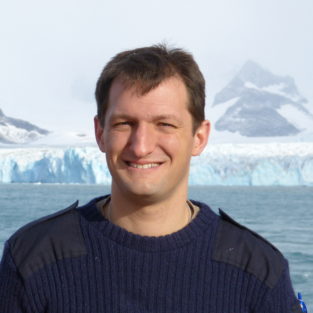
Deputy Science Leader
Share this
Featured
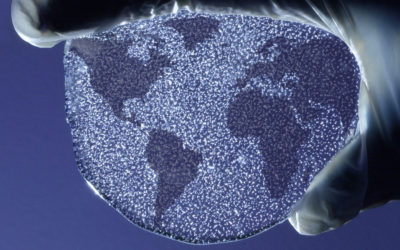
Science strategy
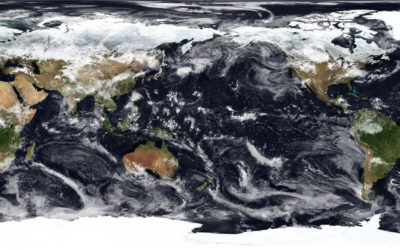
Private: Our Grand Challenges for polar science

